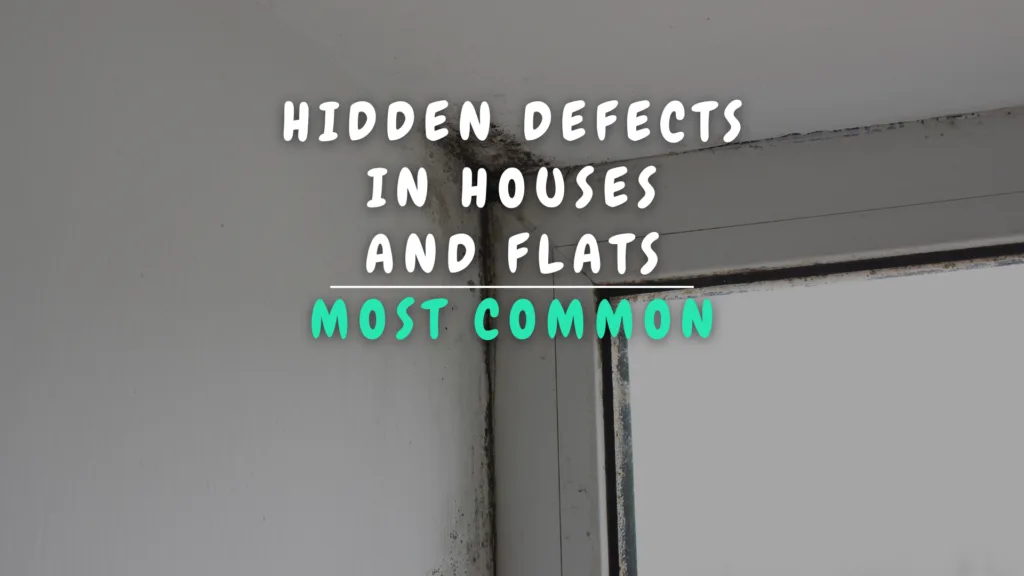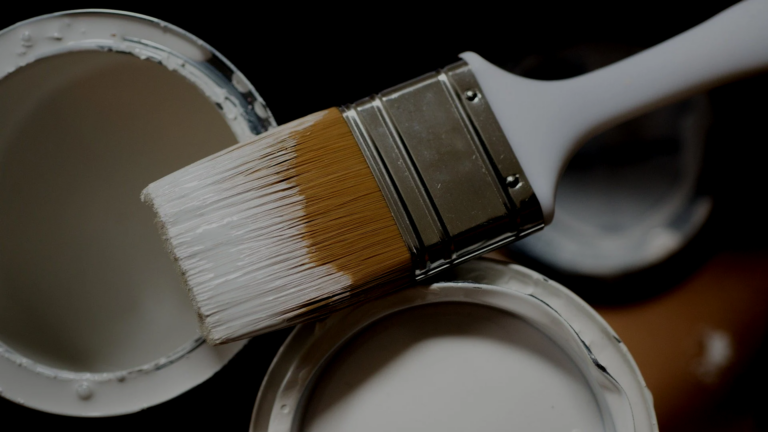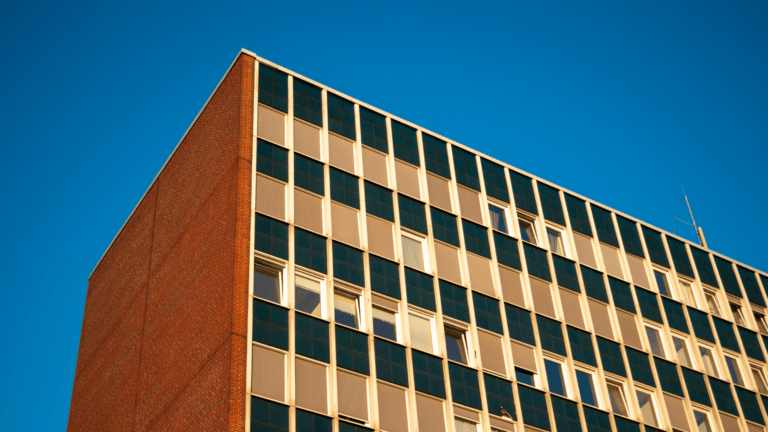Hidden defects when buying a house or apartment are expensive and cause a lot of hassle. Discover here the most common hidden defects and how to recognize them.
1. Hidden defects related to structure and foundation
- Uneven floors or subsidence: May indicate foundation problems or serious water problems.
- Cracks in walls or ceilings: May indicate structural problems or subsidence of the foundation.
- Poor condition of the load-bearing walls (e.g., rust at the reinforcement): This can affect the stability of the building.
- Subsidence or cracks in the foundation: Usually visible as cracks in floors or walls and may indicate problems with the foundation.
2. Moisture problems
- Leaks, especially in kitchens, bathrooms and near roofs: Beware of water damage in this regard.
- Moisture patches low on the wall: Indicates rising moisture from groundwater migrating up the walls.
- Dampness or mold: Usually caused by poorly insulated roofs, walls or facades or poorly ventilated areas such as bathrooms and basements.
3. Roof problems
- Worn or broken roof tiles: Can cause leakage.
- Clogged or leaking gutters: Leads to water accumulation and moisture problems in the facade.
- Poor insulation: A poorly insulated roof causes heat loss and higher energy costs.
- Poor roof structure (e.g., holes): An unstable roof structure can sag, leading to large and urgent costs.
4. Hidden defects related to electricity
- Missing grounding: Buildings without a grounding device can be dangerous during power outages.
- Outdated wiring: This may be a safety hazard and may not meet the current standard.
- Poor quality of switches and outlets: May indicate poor maintenance or outdated installations.
- Overloading groups in the meter box: Used outlets and overloaded groups can cause malfunctions and short circuits.
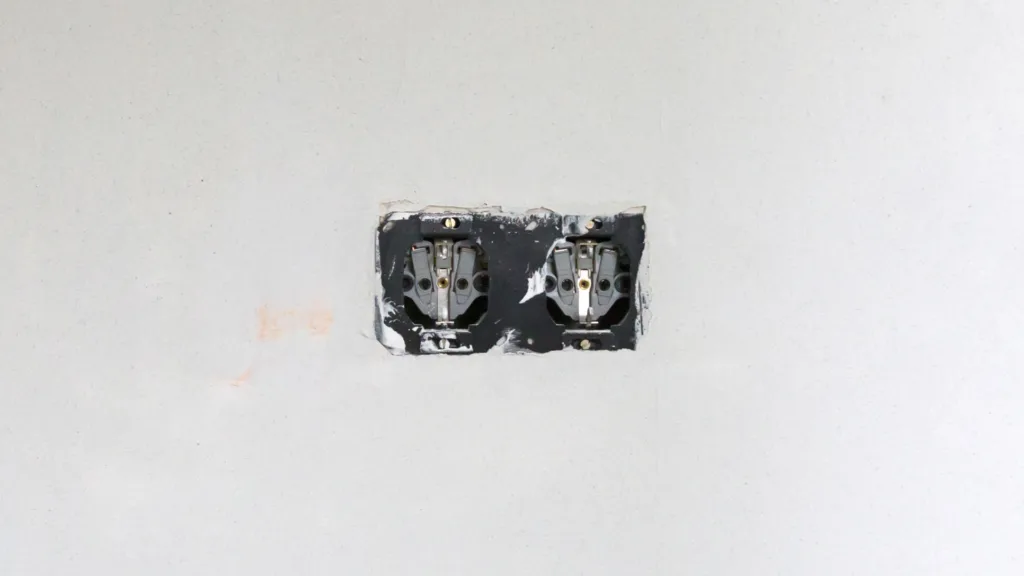
5. Plumbing and plumbing
- Leaking faucets or showers: Can lead to water damage and higher water bills.
- Clogs: Old pipes or poorly constructed drainage systems can clog quickly.
- Leaking pipes: Usually in kitchens and bathrooms, which can lead to water damage and mold.
- Outdated water heaters or hot water systems: Inefficient and old water heaters can fail and cause heat loss.
6. Heating and ventilation
- Old heating system: Can be inefficient and leads to higher heating costs and maintenance.
- Poor insulation in heating pipes: This causes heat loss in unused rooms.
- Poor or no ventilation: Especially in damp rooms such as bathrooms and kitchens, which promotes mold.
- Faulty thermostats or radiators: Can cause erratic heating and additional energy consumption.
7. Isolation
- Poor floor insulation: Especially in homes with basements.
- Aging windows: Single-glazed or poorly insulated windows can lose a lot of heat and cause moisture problems.
- Inadequate cavity wall insulation: Without adequate cavity wall insulation, heat loss occurs, leading to higher energy costs.
8. Joinery and finishing
- Irregularities, cracks or damage to walls and floors.
- Wood rot in windows and doors: Wooden window frames can rot with inadequate maintenance.
- Loose plaster: Especially in old homes, an indication of moisture problems or poor insulation.
9. Other hidden defects
- Asbestos: Often present in old buildings, especially in roofs, pipes and insulation materials. So be sure to check the official asbestos certificate.
- Pests: Termites, woodworm or mice can take up residence in old buildings and cause damage. Read how to control each pest here.
- Property boundaries and building codes: Problems with property boundaries or existing structures that do not meet building codes can cause legal complications.
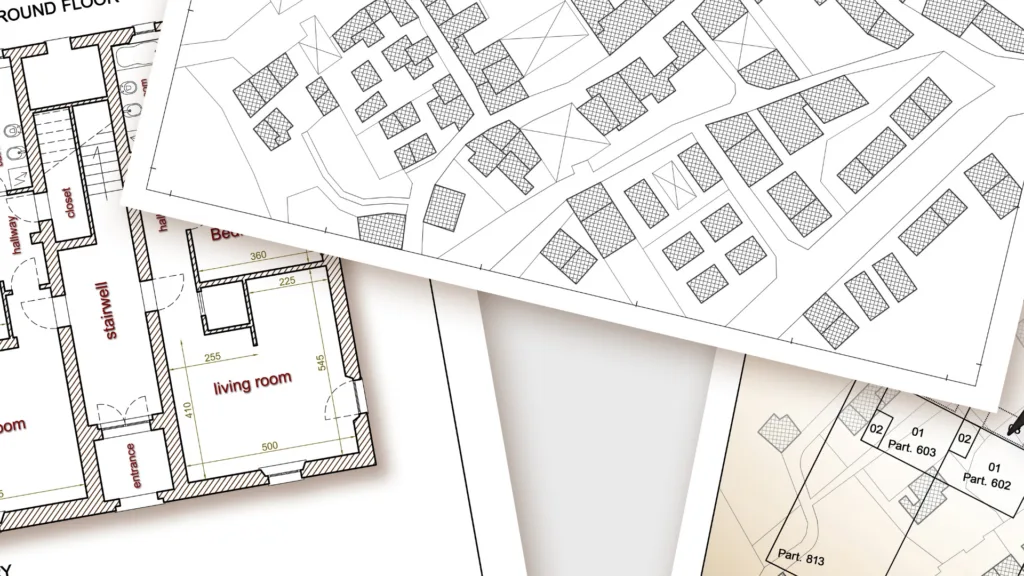
Would you like to cite this article as a source? Then use:
Stiasteny, L. (2024, Nov. 4). Most common hidden defects purchase house or apartment. Apartment.com. Accessed on (date XX/XX/202X), from https://www.appartement.be/meest-voorkomende-verborgen-gebreken
Related articles:
